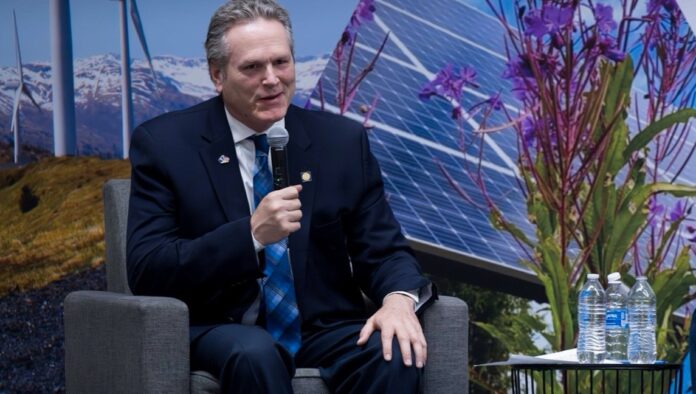Alaska Gov. Mike Dunleavy was elected the incoming chairman of the Interstate Oil and Gas Compact Commission on Wednesday. He will succeed Gov. Mark Gordon of Wyoming, taking over as chairman at the annual meeting, which will take place Oct. 28-30 in Colorado Springs, Colo.
The IOGCC is a multi-state government group promoting best practices for regulating and conserving the “recovery of domestic oil and natural gas resources while protecting health, safety and the environment.” Membership is comprised of the governors of oil and gas producing states, as well as appointed representatives, affiliated provinces in Canada, and some federal agencies.
“IOGCC provides member states and international affiliates with a clear and unified voice and serves as a primary authority on issues surrounding these vital resources,” the group explains.
Members of the IOGCC include governors of Alabama, Alaska, Arizona, Arkansas, California, Colorado, Florida, Idaho, Illinois, Indiana, Kansas, Kentucky, Louisiana, Maryland, Michigan, Mississippi, Montana, Nebraska, Nevada, New Mexico, New York, North Dakota, Ohio, Oklahoma, Pennsylvania, South Dakota, Texas, Utah, Virginia, West Virginia, and Wyoming.
The most recent chair of the group who hailed from Alaska was Gov. Sean Parnell in 2012 through the end of his term in 2014.
In a related matter, Alaska State Sen. Bert Stedman of Sitka is the 2023-24 chairman of the Energy Council, a legislative body with a similar mission to the IOGCC, with legislators from 15 energy-producing states and two Canadian provinces.
Dunleavy and Stedman in leadership roles in these key organizations puts Alaska in a leadership role for oil and gas policy, regulation, and conservation.
